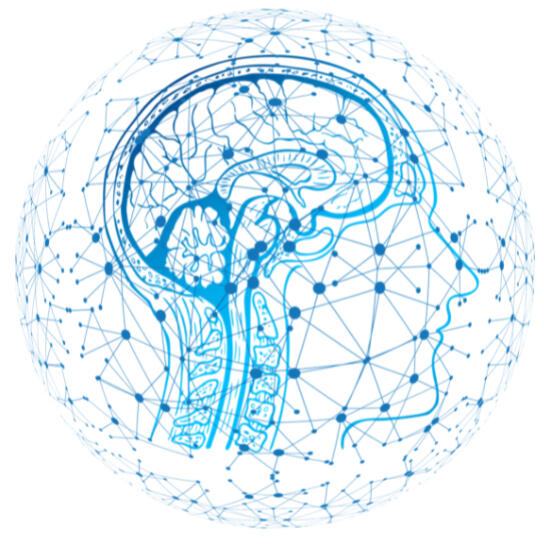emotional resilience
is the cornerstone for long-lasting success
I help international organizations and companies thrive sustainably by nourishing their source - the emotional resilience and wellbeing of their people.
I coach bright minds to become resilient by helping them use stress / unpleasant emotions as a signpost and catalyst for change & innovation.

©Elvira Krämer. All rights reserved.
Imprint
This website contains links to social media profiles and external websites. By clicking on these links, you will leave our site and be subject to the privacy policies of the respective providers.

Service
Integrative Emotion Coaching
Emotional Intelligence in practice for stress regulation, resilience and better performance.
emotional intelligence is the currency of the 21st century
Dirk Eilert
I mostly coach Global Nomads (expats, digital nomads, contractors etc.) and people who work in an intercultural setting that is diverse, demanding and fast paced.Unlike others focusing on strategies and action plans to solve micro and macro challenges in companies, I make sure we work on the root cause first and get rid of the emotional roadblocks to pave a new way for pro-active, engaging and sustainable actions.Throughout the years I have learnt that most challenges, conflicts or unwanted behavior / reoccurring patterns in companies have their basis on a very human level - the emotional level.We live in a society that suppresses or avoids unpleasant feelings, especially in the work environment as it is deemed as "unprofessional". But we do not realize that stress / unwanted emotions are valuable sign posts showing us our unmet needs and values.When we start to learn about the triggers, function and needs behind emotions and practice how to deal and calm (regulate) them, that is when we become pro-active instead of reactive. We become more self-reflective, begin to see solutions for problems we did not see before and develop the ability to change our behaviors.Emotional struggles or so called stress cannot be solved on a rational level. Hence that is where my coaching comes in. I help leaders, managers and employees pinpoint and dissolve unpleasant emotions with the latest scientific emotional regulation techniques, so your employees and company can focus on the necessary tasks at hand and solve problems they are paid for, so your mission and vision does not get distorted.

why is it important?
Emotional intelligence
Emotion Coaching teaches and translates Emotional Intelligence on a rational and emotional (transformative) level.
What differentiates outstanding from average performers at work is Emotional Intelligence (EI): "McClelland (1998) reviewed data from more than thirty different organizations and [...] showed that a wide range of EI competencies (and a narrow range of cognitive ones) distinguished top performers from average ones."¹The Psychologist Daniel Goleman, Co-Director of the Consortium for Research on Emotional Intelligence in Organizations at Rutgers University, summarizes Emotional Intelligence in four domains (emotional competencies).The first pillar is Self-Awareness (knowing what we are feeling and why), which is crucial for decision-making and our moral compass.Self-Management (including motivation), the second pillar, is the ability to handle distressing emotions in an effective way, so that they do not block you or get in the way of what you are doing. It also means being able to tune into our feelings, so we can learn from them (every emotion has a function).Emotional intelligence also consists of the competence Social Awareness / Empathy (knowing what others are feeling).Lastly, Relationship Management (social skills) make up for the fourth pillar, which puts the above pillars all together in skilled relationships.
¹ http://www.eiconsortium.org/pdf/aneibasedtheoryof_performance.pdf
Benefits of Self-awareness
helps handle our own emotional reactions better
key to realizing one’s own strengths and weaknesses, which is the hallmark of superior performance
awareness of own abilities and limitations, seek out feedback, learn from our mistakes, and know where we need to improve and when to work with others who have complementary strengths
on 360-degree competence assessments, average performers typically overestimate their strengths, whereas self-aware performers rarely do²
Benefits of Self-management
those with a stronger sense of control over not only themselves but the events in their lives are less likely to become angry, depressed or quit when faced with job stress
ability to balance drive and ambition with emotional self-control, harnessing their personal needs in the service of the organization’s goals
managing your own stress and staying unaffected have the most effect on sales. Studies show that those with the largest volume of sales are most conscientious
"Emotional resilience allows an individual to remain comfortable with the anxiety that often accompanies uncertainty and to think “out of the box,” displaying on-the-job creativity and applying new ideas to achieve results."³
² http://www.eiconsortium.org/pdf/aneibasedtheoryof_performance.pdf
³ Ibid.
Benefits of Social Awareness
sensitivity to others (empathy) is critical for superior job performance when interacting with others.
skills in empathy correlates with effective sales
in an increasingly diverse workforce, the empathy competence allows us to read people accurately and avoid stereotyping that can lead to performance deficits by creating anxiety in the stereotyped individuals (diversity & inclusion).
the ability to identify clients unstated needs and concerns and then match them to products or services
the ability to read the currents of emotions and political realities in groups is vital to the behind-the-scenes networking to wield influence⁴
Benefits of relationship management
Developing others involves sensing people's development needs, which is a vital skill for effective leadership at high levels
self-awareness and empathy results in better communication and collaboration (handling difficult issues straightforwardly, better listening, open communication and being receptive to bad news) - The better this skill, the more others prefer to deal with them
the arts of listening and empathizing are crucial for conflict management, handling difficult people and situations with diplomacy (important for long-term symbiotic business relationships)
Teamwork depends on the collective emotional intelligence of its members
Emotions are contagious: the more positive the style of a leader, the more positive, helpful, and cooperative are those in the group
The higher a leader's emotional intelligence, the higher the financial results (profit & growth) due to the trickle-down effect on the climate (50-70% of employees' perception of working climate is linked to the emotional intelligence characteristics of the leader⁵)
⁴ http://www.eiconsortium.org/pdf/aneibasedtheoryof_performance.pdf
⁵ Ibid.
How does it work?
Emotion Coaching
emotion regulation for resilience
Psychoeducation, regulating dysfunctional emotions and teaching emotion self-coaching techniques is the core of my coaching.The overall goal of emotion regulation is fostering well-being, training Emotional Intelligence and expanding the individual Window of Tolerance (optimal arousal to function) and make it more flexible (resilience).When we are hyper or hypo aroused (autonomic nervous system is over-aroused) our normal, healthy functioning becomes compromised. In this state we are not able to absorb and process information, develop nor learn. At the same time, 5 min of experienced dysfunctional anger can impair the immune system for more than 6 hours.⁶To function properly and deal with life in a healthy way we need to find balance in our arousal states. Emotional self-regulation is the key to do so and the basis for optimal focus, performance and health.When we are emotionally dysregulated (stressed, overwhelmed, angry, embarrassed, sad, fill in the blank) we cannot think clearly. The part of our brain that is responsible for rational decision making and logic is switched off. In this dysregulated state we say things we don't mean, make wrong decisions, or act unfavorably. In the long run, chronic stress can lead to mistakes and errors, burnout, bad team work, higher sick leaves, dissatisfaction and terminations.I help people de-stress (regulate their emotions) and activate needed emotional resources to handle outside stressors. Gaining new perspectives to solve a problem e.g. is only possible when we are in a regulated state, therefore emotion management is the basis for clear, logical and complex thinking.At the same time, integrative emotion coaching fosters empathy (knowing what and why we feel helps us empathize with others' feelings) and makes people understand themselves better through the process of self-awareness, psycho- and emotion education.Lastly, emotion coaching teaches us about ourselves (our needs and values) and therefore shows us why we think and behave a certain way, which is fundamental for being motivated, changing our behaviors successfully and knowing how and when to set healthy boundaries for our well-being and authenticity.
⁶ https://www.heartmath.org/research/research-library/basic/physiological-and-psychological-effects-of-compassion-and-anger/

who is it for?
If your organization or company is facing the following challenges or is looking to achieve the goals listed below Integrative Emotion Coaching is the strategy your company needs.
Challenge
is your company facing one of the following challenges?
overworked, overwhelmed or stressed employees in a fast paced, demanding environment
decrease in performance or creativity
lack of motivation or work satisfaction
work life balance complains
burnout
increased turn over or sick leave
conflict or power struggles among team members
leadership and management complains
difficulty adapting to changes at work and private life (worry, overwhelm, frustration, helplessness etc.)


Goal
What does your company want to achieve?
increased business performance (e.g. more efficiency or productivity)
resilient and adaptable employees that can adjust to changes and outside stressors (pandemic, team dynamics, role change, conflicts, deadlines etc.)
increased satisfaction and well-being of employees (psychological, social and emotional health)
increased leadership capabilities (e.g. motivated, empathetic, agile, supportive, resourceful and solution-oriented leaders and managers)
better team work and communication skills (social & interpersonal skills)
psychological safe (trusting), caring (accountability) environment to inspire people to achieve more
==Strategy ==
Integrative Emotion Coaching
Integrative Emotion Coaching is the solution to overcome and achieve the above mentioned challenges and goals. It is suited for people who are interested in becoming emotionally agile and resilient* to adapt to adversity without lasting difficulties.
Effects
Further benefits and impacts of emotion coaching
increased emotion regulation skills in acute stress (being less reactive and more proactive, self-empowerment and -actualization)
increased presence, self-awareness and focus (knowing when and how to take breaks/regulate & knowing own boundaries and values to take action accordingly), which leads to better productivity & efficiency
improved self-awareness has a positive effect on emotional well-being and leads to more empathy (people who are more attuned with their emotions, are more aware of and able to cope with emotions of others)
this leads to improved communication and resource- & goal-orientated leadership, improved team work and cooperation, a safer and trustworthy environment and therefore overall higher work satisfaction, inclusiveness⁷ and innovation⁸
regulated emotions enables the activation of complex and rational thinking and therefore early problem solving, creativity and innovation
learning how to dissolve unpleasant emotions and activating your own mental resources (mental flexibility) leads to more adaptability due to the competence of dealing with emotions (fear e.g.) that is necessary in times of change and transition
positive impact on other areas in life, which impacts work and vice versa
resilient and agile employees = resilient and agile company
growth mindset culture (key to transformation, engagement, and innovation⁹)
intrinsically motivated employees
safe, innovative and inclusive environment (empathy can improve a sense of belonging, which is the basis driver to form significant relationships and the single metric that is consistently and universally tied to a person’s workplace commitment, motivation, pride and recommendation¹⁰)
competitive advantage to other organizations (many companies haven't realized the importance of emotional intelligence yet)
⁷ https://www.forbes.com/sites/janicegassam/2018/09/25/empathy-the-key-to-a-diverse-and-inclusive-workplace/
⁸ https://www.researchgate.net/publication/320285801Innovation-Theroleoftrust
⁹ https://www.researchgate.net/publication/337772472GrowthMindsetCulture
¹⁰ https://hello.cultureamp.com/hubfs/1703-Belonging/Culture-Amp6-ways-to-foster-belonging.pdf* pillars of resilience: self awareness, mindfulness, self care, positive relationships & purpose

About
Elvira Krämer - Stress & Emotion Coach
I am Eli, short for Elvira, a so called Global Nomad.I was born in Abu Dhabi, UAE and was partly raised in the Middle East and Switzerland by a Ukrainian mum and a Swiss dad.It is no surprise that my socialization led to my passion for travel, hence curiosity for different cultures, human behavior and Psychology.Growing up as a Global Nomad I learnt to adjust to change and different environments quickly and became open to new ideas and perspectives. Hence the reason for my passion to be surrounded by diverse people, mindsets and environments.Thus, personal and social change has become my point of interest, which led to my MA in Sociology & Media Sciences (digital change and its impact) as well as my broad work experience in different roles, fields, industries and environments locally and globally.While I was working in challenging environments (international development in the field) and at the same time learning about change management and social change in practice I became more and more interested in learning about personal change and resilience.And that is why I got certified in NLP (NLP-Master IANLP) and became a emTrace® (integrative emotion coaching) Coach.Thanks to my broad national and international work experience and my diverse competences in intercultural communication, conflict management, process consulting and organizational development I have a very unique skill-set and comprehensive understanding of issues faced in different contexts (roles, fields, industries and environments).My curiosity in people who think differently is my motivation to work with diverse international organizations and companies to create a safe, trusting and supportive environment for its people by fostering Emotional Intelligence for cooperative and creative thinking that leads to innovative and sustainable changes.

Contact
If you want to invest in your organization's Emotional Intelligence, I would like to have a chat with you.
Imprint
Elvira Krämer
Hammerstrasse 45
4058 Basel
Switzerland[email protected]
+41 78 732 85 64Legal form: Sole proprietorship
©Elvira Krämer. All rights reserved.
This website contains links to social media profiles and external websites. By clicking on these links, you will leave our site and be subject to the privacy policies of the respective providers.